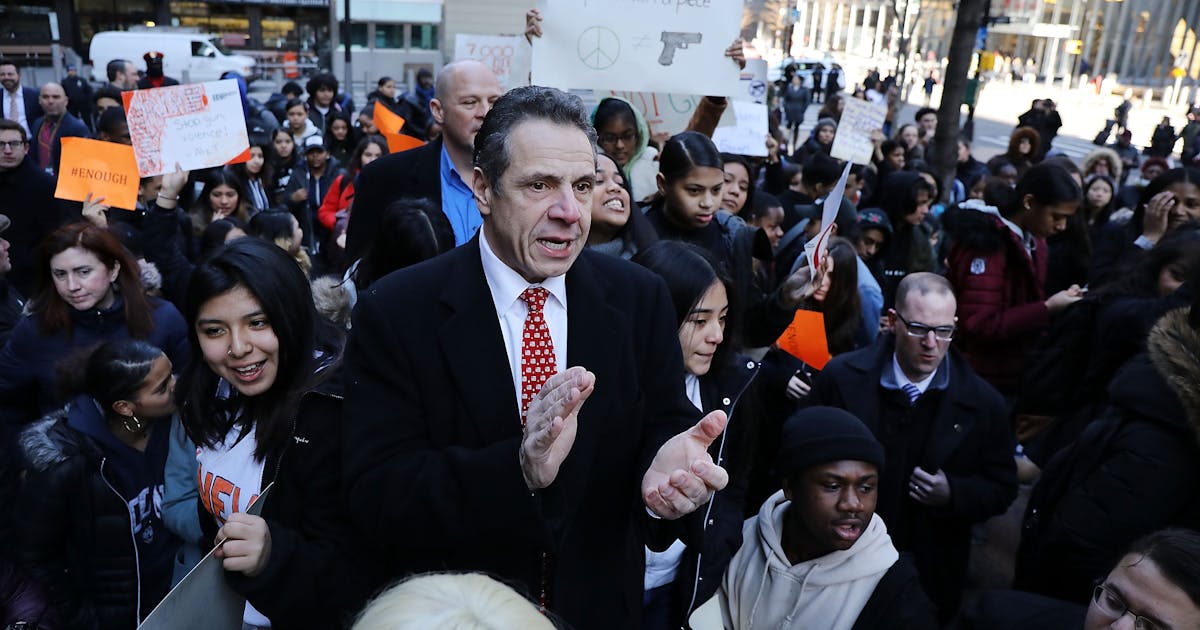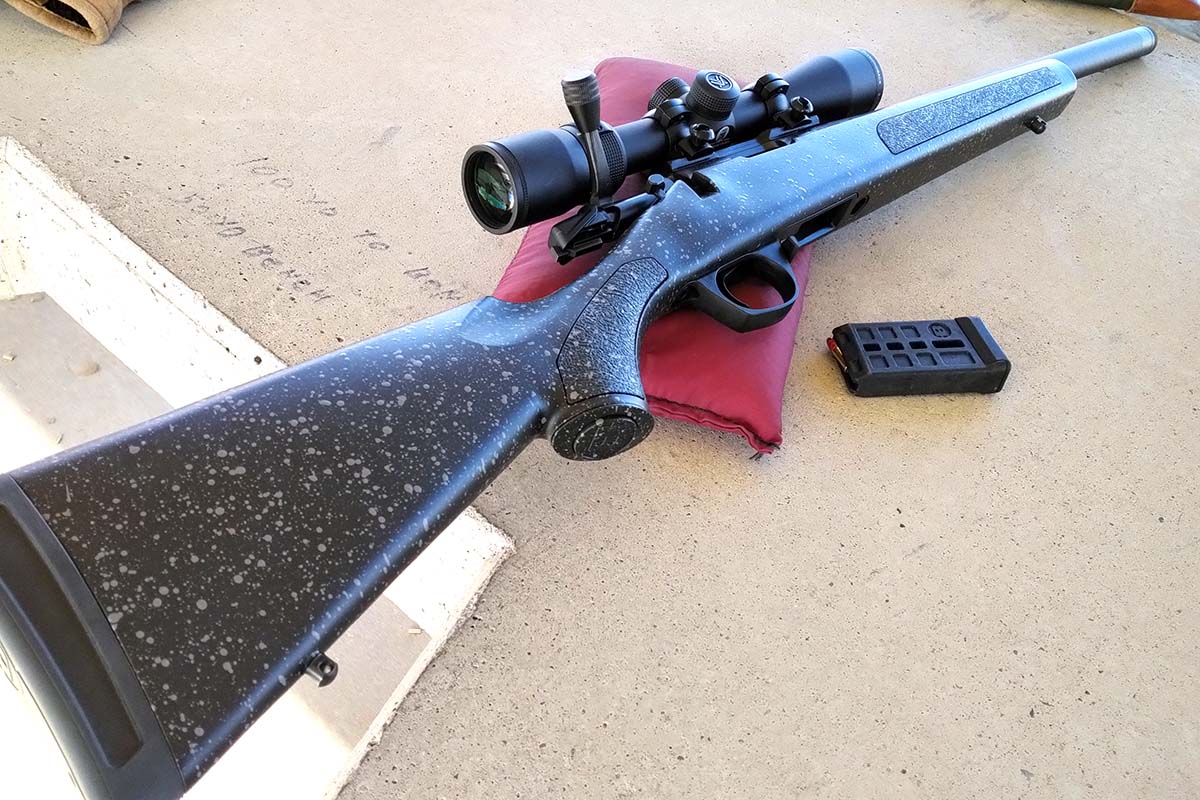On the eve of an expected vote in the U.S. Senate on the first gun-safety legislation in nearly 30 years, U.S. Sens. Chris Murphy and Richard Blumenthal said Wednesday that the bipartisan deal nearly unraveled over the definition of boyfriends.
A key measure in the bill would extend removal of gun ownership rights for as long as five years to non-married partners convicted of misdemeanor domestic assaults. Currently the law applies only to married spouses – and so the challenge was to define “dating partner.”
That was just one of many hurdles in crafting a bill that was both a groundbreaking landmark and a limited compromise, Murphy and Blumenthal said in an online news conference from Washington, D.C. Wednesday. Despite opposition from the NRA and other gun rights advocates, at least 14 Republicans are expected to vote in favor of the historic bill, they said, and the number could grow to 16.
While many of the four major items in the proposal have already been enacted in Connecticut after the Sandy Hook Elementary School massacre of 2012, the state will likely be eligible for hundreds of millions of dollars in mental health support.
Murphy and Blumenthal worked around the clock over the weekend, with Blumenthal taking time out from his daughter Claire’s wedding festivities on Sunday to check in with his staff and bring the legislation over the finish line. On Tuesday it overcame a Republican filibuster by four votes, but the NRA has vowed to try to kill the bill.
It could be voted on as soon as Thursday, giving the U.S. House of Representatives time to vote on the legislation next week before the Independence Day weekend.
“There were a number of times the talks could have fallen apart,” Murphy told Connecticut reporters in a virtual news conference from Washington. “This really wasn’t a discussion in which there were major concession by one side or the other. It took four weeks to narrow the set of issues and define the language, but we ended up getting included in this bill everything that was on the table at the outset of the talks.”
Both senators called the bill historic and a signal of the end of the lock on Congress by the NRA and the gun-rights lobby. At the same time, both spoke about the limits of the bill.
“Progress is better than nothing,” Blumenthal said. “This measure is not the one we fought for, and it’s not the one that I would have written if I were working alone….But this bill will save lives.”
He added, “The political stars are aligned for us at this moment.”
As with most legislation, that alignment was as much about details as it was about the big picture. The so-called boyfriend loophole was especially sticky.
“Currently, if you commit a domestic violence misdemeanor against a girlfriend, you can still keep your guns,” Murphy said. “You can go to the store the next day after your conviction and buy guns. That loophole is closed by this legislation. There was a long discussion about how you define a dating partner. We used a model state definition to define what a dating partner is.”
A prolonged discussion toward the end of the negotiations lasting about a week centered on how to regain gun rights for misdemeanor offenders, limited to first-time offenders and only five years after a conviction with no violent offenses along the way.
Murphy said the bill culminates years of work he and Blumenthal have done since the Newtown school massacre left 20 children and six adults dead and the Senate duo pledged to make the nation safer. “Jointly, we have been together in this every day over the last 10 years to help build into existence a movement around ending gun violence that one day we hoped would be stronger than the NRA, would be strong enough to beat the NRA,” Murphy said. “That day is finally here.”
“This measure would substantially shrink and reduce the boyfriend loophole, not necessarily close it entirely, but it will provide very substantial help to a lot of women, and we’re talking mainly about women in dating relationships, romantic connections,” Blumenthal said. “Hopefully the courts will be protective and they will lean toward providing safeguards to women in the way they implement it.”
Connecticut has one of the nation’s leading red flag laws, allowing people to request that police and courts take away firearms from people deems a threat to themselves or others.
“This shrinking or reducing that loophole is enormously important and impactful and again, Connecticut has led the way in our closing it the way we did,” Blumenthal said. About 20 states have closed the loophole, expanding the universe of potential abusers beyond those who are married to victims. “In states that have closed the boyfriend loophole, there is 10 percent lower rates of intimate partner homicide,” Murphy said. predicting that that section of the law along can save hundreds of lives every year.
“Just to be clear, states can’t use the money for unrelated purposes,” Blumenthal said. “Whether it’s mental health courts or veterans’ courts, the idea is the same: Separate people from firearms so they can’t do harm. It supports these emergency risk orders and red flag laws in states where maybe enforcement has failed to be as effective as it should be.”
The bill includes enhanced background checks for gun buyers under 21, including calls to local police departments; and would criminalize gun trafficking and straw purchasers who buy weapons in one state and drive them to another, such as Connecticut. The bill also clarifies the definition of a firearms dealer, including gun show sales.
In addition, there is a $15 billion investment in mental health programming and $750 million to be awarded through the U.S. Department of Justice. “We are going to build out a new national system of community behavioral health clinics,” Murphy said. “Connecticut will be getting some of that money. We are going to send money to community anti-gun violence initiatives like those that are operating today in New Haven and Hartford and Bridgeport to make sure we have funding to interrupt cycles of violence in our cities.”
Murphy said “persistence” was the key to getting the legislation to the threshold of passage. “Just the refusal to let the negotiations collapse,” he said, recalling his mother giving him an engraved stone when he was a kid that said “real leaders are ordinary people with extraordinary persistence.”
The result was an agreement that was the culmination of 10 years of work and potentially the first gun legislation since 1994. “There were a lot of threads that came together here,” Blumenthal said, adding that states would not be required to implement red flag laws, although 20 already have such laws. Connecticut’s dates back to 1999.
Blumenthal said that while the bill is a start toward national gun safety, he has been working for years on safe-storage requirements and other issues, including gunmakers liability and untraceable ghost guns. “Here is the key point: Our Republican colleagues had to get 10 members at least to support it, so the metric was whether 10 Republicans would vote for it, and that’s a very hard start, political reality, that both sides had to face,” Blumenthal said. “It is a compromise, there’s no question about it.”
kdixon@ctpost.com Twitter: @KenDixonCT
















